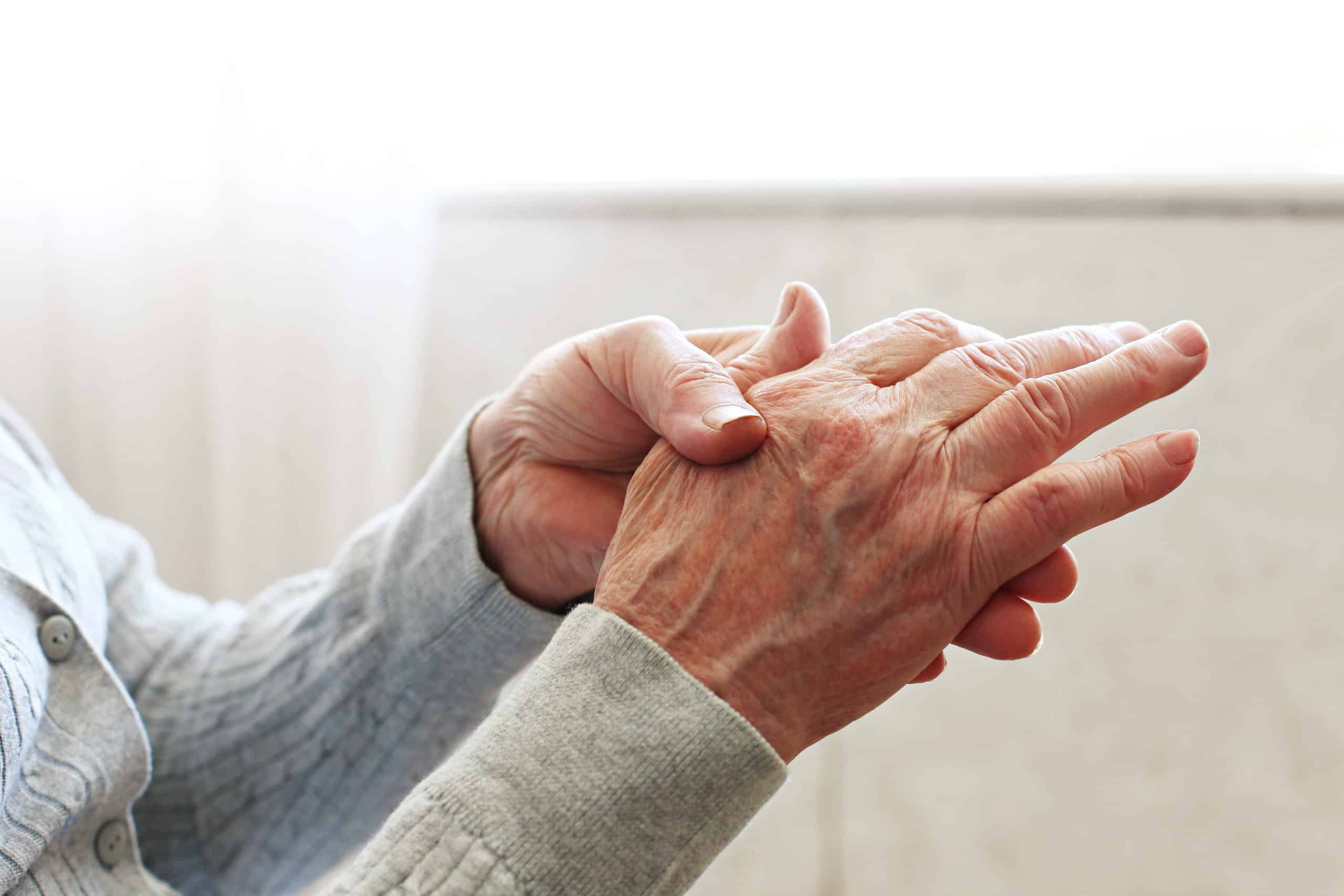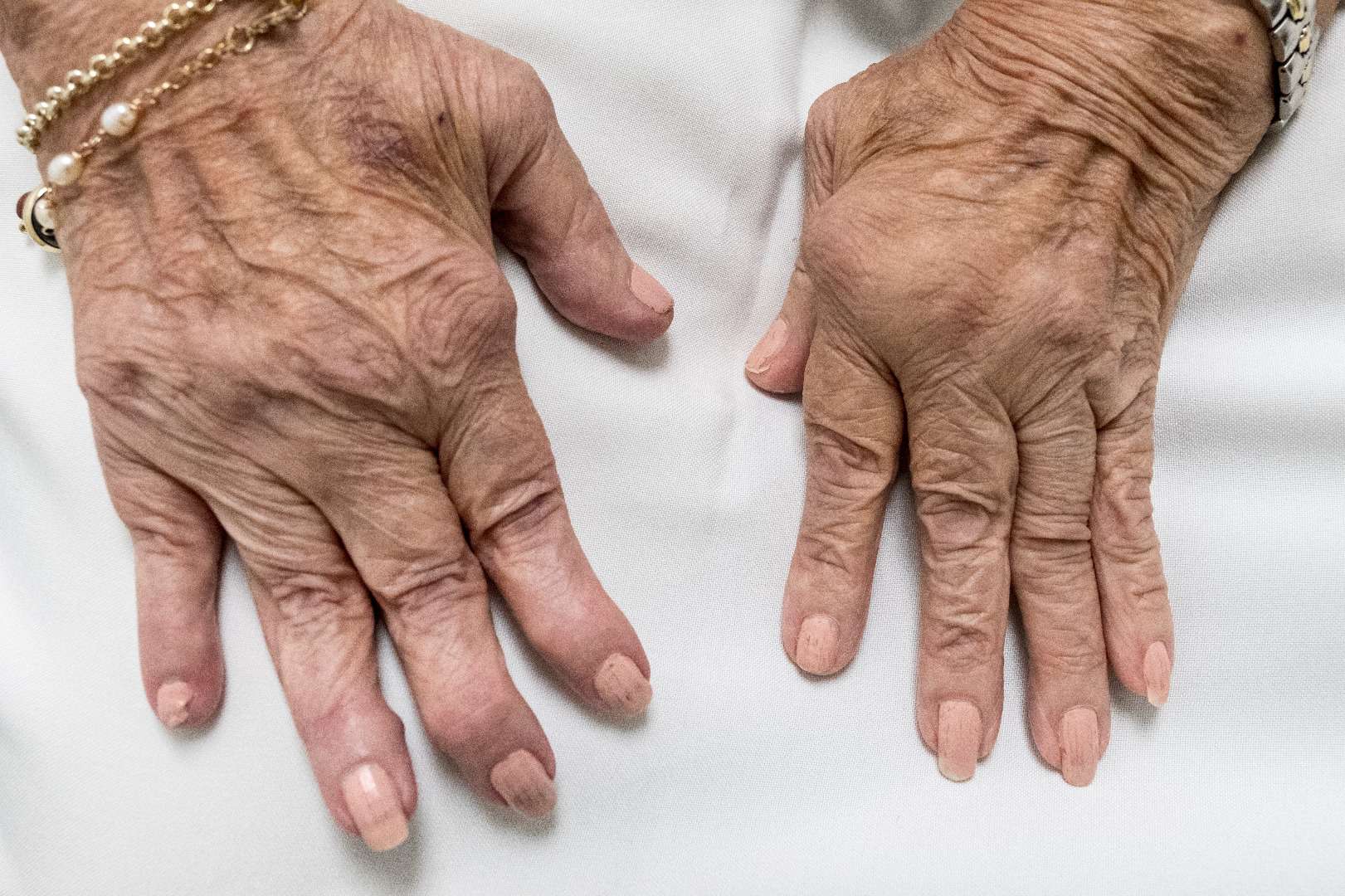Arthritis strikes in anyone, regardless of age and gender. However, it is very common among seniors with ages 65 and older. What’s tricky about this illness is that it can attack nearly any body part, anytime. Individuals suffering from arthritis don’t have any idea how long the attack lasts. In some conditions, it may last for a couple of hours. However, in certain circumstances, the pain can stay for a few days and may result in chronic pain.
If you are a caregiver, whether, by profession or obligation as a family member, it is important to know the important information about arthritis. If you have adequate knowledge about this common illness of seniors, you’ll feel confident in looking for or giving your patient proper treatments.
Signs You May Find in Your Elderly Loved One
 Is there anyone in the family who had arthritis before? If you don’t have any idea and your parent or grandparent feels a sudden joint pain, chances are, he has arthritis. Below are some signs for you to watch out:
Is there anyone in the family who had arthritis before? If you don’t have any idea and your parent or grandparent feels a sudden joint pain, chances are, he has arthritis. Below are some signs for you to watch out:
- Swollen joint
- Stiffness in joint
- Tenderness of a joint
- The painful feeling when you or he touches a joint
- Redness or warm feeling in the joint part
When your elderly loved one begins to experience any of these symptoms, and it does not disappear within two weeks, take him to the doctor. More so, if he develops a fever along with one of the symptoms, all the more he needs to see his doctor immediately. When you take the senior in the family to the doctor, he is likely to undergo an X-ray. He will also go through other related tests to determine if he is experiencing symptoms of arthritis.
Types of Arthritis and Their Corresponding Treatment
Arthritis occurs in different types. As a caregiver, it is essential that you know these types so you’ll know too, the proper treatment to give the elderly person. Here they are:
Osteoarthritis (OA)
 This is the most common type of arthritis that may strike a senior you are assisting. When cartilage starts tearing and wearing away, that’s when osteoarthritis takes place. It commonly attacks the neck, hips, knees, lower back, and hands. This form of arthritis does not have a direct trigger, and it frequently comes on with a person’s age.
This is the most common type of arthritis that may strike a senior you are assisting. When cartilage starts tearing and wearing away, that’s when osteoarthritis takes place. It commonly attacks the neck, hips, knees, lower back, and hands. This form of arthritis does not have a direct trigger, and it frequently comes on with a person’s age.
- How to treat Osteoarthritis
Acetaminophen or any other similar pain reliever – Most medicines are available over-the-counter. Other medications, on the other hand, are available through a doctor’s prescription. For weight-bearing joints or arthritis in the knees, help your patient need some weight loss to reduce the pain.
In some conditions, the doctor may recommend for shots in the joints to relieve the pain. However, in most severe cases, there may be a need for surgery.
Rheumatoid Arthritis
 Type of arthritis is an autoimmune disease. The pain that a patient with Rheumatoid Arthritis (RA) experience comes from inflammation in his joints, which leads to pain and swelling. More so, RA can last for hours, and sometimes, when the pain is severe, the patient is unable to move his join. The most common places for this arthritis pain to attack are in the fingers, elbows, wrists, hips, shoulders, elbows, neck, ankles, knees, and neck.
Type of arthritis is an autoimmune disease. The pain that a patient with Rheumatoid Arthritis (RA) experience comes from inflammation in his joints, which leads to pain and swelling. More so, RA can last for hours, and sometimes, when the pain is severe, the patient is unable to move his join. The most common places for this arthritis pain to attack are in the fingers, elbows, wrists, hips, shoulders, elbows, neck, ankles, knees, and neck.
- How to treat Rheumatoid Arthritis
Other than the over-the-counter anti-inflammatory medications, the doctor may prescribe anti-rheumatic drugs, as well, to slow down the possible damage this disease may bring. Since the medicines are for the elderly individual, watch out for possible side effects.
Gout

Anyone, specifically a senior with gout, will understand the reason gout is among the most painful arthritis type. The moment uric acid forms in the joint spaces or in the connective tissues, gout takes place. This results in swelling, heat, and pain in the joint. In addition, gout is frequently triggered after one has eaten foods such as dried beans, liver, shellfish, gravy, anchovies, or peas.
This arthritis form is likely to worsen if the senior you are assisting is consuming too much alcohol, taking certain drugs, including specific medications for blood pressure, and overweight. While gout commonly attacks the big toe, it can also occur in toes, knee, ankle, hand or wrist.
- How to Treat Gout
Possibly, your doctor will discuss what triggered the arthritis attack in your senior patient. Therefore, you can avoid such attacks the next time. Additionally, the doctor will also prescribe corticosteroids for the reduction of swelling.
Reactive Arthritis
Obviously, Reactive Arthritis is a reaction or response to a certain infection in specific parts of the body. While a symptom of this type includes inflammation of a joint, it can also include inflammation of the urinary tract, or conjunctivitis or pink eye.
- How to treat Reactive Arthritis
Since Reactive Arthritis is caused by a certain infection, the doctor is most likely to prescribe antibiotics for the treatment of the infection. He might advise your patient to take anti-inflammatory medicines, as well.
Other Effective Treatments for Any Type of Arthritis
While every arthritis type has its own respective treatments that are guaranteed effective, below are some common ways to address the illness whatever type it is:
- Everyday Workout
One effective way to avoid and treat pain and stiffness of the joint is to keep it moving. Bicycle riding, swimming, walking, or anything that can keep the older adult moving can help.
- Range-of-Motion Workouts
Yoga and dancing are two perfect examples of this kind of exercise as they don’t just keep the patient moving, but improve their flexibility, as well.
- Specific Exercises for Strengthening
Weight lifting is an ideal treatment for muscle building. It is important to know that muscles can help protect the joints.
- Heat or Cold Treatment
Applying a warm or cold cloth to the area in which arthritis attacks help treat the illness. Additionally, your patient can protect his joints not only by resting, but eating a balanced diet, as well. Moreover, wearing the appropriate shoes contribute to the protection of the feed and lessening of strain on the joints.
The most important of all, if you suspect that your patient or loved one is suffering from arthritis, make sure to contact the doctor to set an appointment. This way, the senior at home doesn’t have to suffer in pain anymore.
The Right Caregiver for Your Senior Loved One’s Proper Care
You surely want to address the pain properly and swelling your elderly loved one is experiencing due to arthritis. However, you might not have the time to look after him 24/7, much as you’d want to. In cases like this, worry no more. Innovative Homecare Solutions, Inc. can do the work for you.
The dedicated, compassionate, and skilled caregivers of this company guarantee to provide your loved one with the proper care he needs. You can also be sure that pain management for your parents or grandparent is so possible. Contact us today at (630) 225-0100. To know more about the services we offer, visit www.innovativehomecare.com and see which among our services matches your elderly loved one’s care needs.

